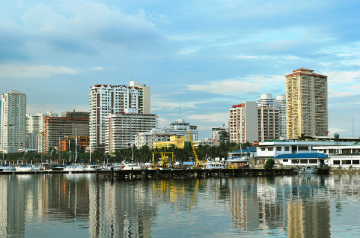IRES Seminar Series
Time: 12:30pm to 1:30pm (every Thursday)
Location: AERL Theatre (room 120), 2202 Main Mall
Speakers: RES MA student Aaron Moguin and RES PhD Candidate Sara Elder
________________________________________________________________________________________
The Influence of Financial Factors on Sustainable Design Decisions
Abstract:
As more people become city dwellers than ever before, urban growth and land development impulses often trend toward less socially and environmentally balanced outcomes. While this is part of a much larger tendency that can be seen in the broader development of our species, there are two major reasons this shortcoming exists presently:
- Most urban development and change currently occurs within a real estate development model that rewards a short-term return on investment for its agents, with little to no incentive to maximize long-term performance or benefits, whether socially, physically or economically.
- Tools and data that communicate communitarian, regenerative, sustainable goals effectively in the financial language of this agent do not largely exist at present.
Planners, designers, and regulators could all benefit from the availability of more arguments and benchmarks that incorporate financial implications to communicate preferred positive outcomes to these agents. “Green” certifications for buildings and communities attempt to bridge some of this gap by providing its inhabitants a branded, standardized endorsement of long-term quality. However, space often exists between these rating systems’ intentions, and their outcomes.
A better understanding of how the hundreds of individual design decisions that make up sustainable designs are achieved in an environment of financially influenced decisionmaking could help close this gap between the commercial obligations and priorities of the property owners, and outcomes that benefit all. To investigate this, the influences and criteria behind the design choices at several exemplar developments are considered, using the options encouraged within LEED and other certification systems as a basis for investigation.

Bio:
Aaron Moguin is an urban planner and designer with experience creating and influencing innovative, elegant and collaborative designs and policies on three continents. He is pursuing a Masters degree at the Institute for Resources, Environment and Sustainability at UBC.
__________________________________________________________________________________________
Assessing the Impacts of Retail Supply Chains on Food Security and Agricultural Sustainability in the Global South: The Case of Walmart in Nicaragua
Abstract:
Multinational food retailers are expanding in size and reach, gaining buyer-driven power to govern global agrifood production and consumption. There is at the same time a growing belief by governments and non-governmental organizations (NGOs) that corporate social responsibility (CSR) will be effective at achieving rural development goals for smallholder farmers and their families in the global South. This presentation highlights the on-the-ground impacts of rising corporate governance for household food security and agricultural sustainability through the case of Walmart in Nicaragua. It focuses on how and why the particular terms of farmer engagement in retail-led supply chains mediate these impacts. The analysis is based on nine months of original fieldwork in Nicaragua in 2013, including 65 interviews with produce sector stakeholders and a survey of 250 smallholder vegetable farmers. The study results extend understanding of why CSR is not necessarily an effective development strategy. The findings challenge theories of private governance effectiveness, showing that multinational retail CSR programs in some cases fail to increase control over suppliers, and highlighting the agency and dynamism of smallholder farmers and governments in the global South.

Bio:
Sara Elder is a PhD Candidate in Resources, Environment and Sustainability at UBC. Her research focuses on issues at the intersection of global economics, community development and the environment. Sara’s current research examines the rise in private governance of agrifood supply chains and the consequences for smallholder farmer food security and environmental sustainability in the global South. Her work has been published in the Journal of Peasant Studies, World Development, and the Journal of Rural Studies. Sara holds an MA in Resource Management and Environmental Studies (2010), where she studied the effects of Fair Trade certification on the livelihoods of Rwandan coffee producers, and a BA in International Relations (2004). Her professional experience includes international development work with communities in Canada, Rwanda, Kenya, Tanzania, South Africa, and Bolivia, and technical and policy work at the International Labour Organization in Geneva.

Photo credit: ohbernadine from flickr/Creative Commons.